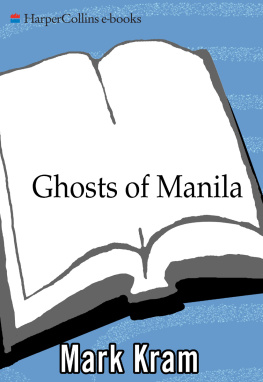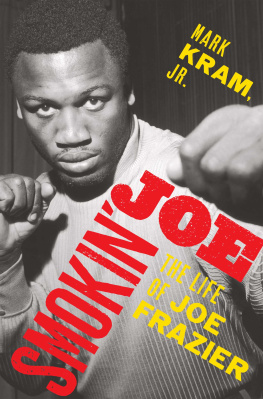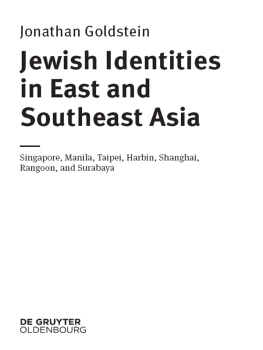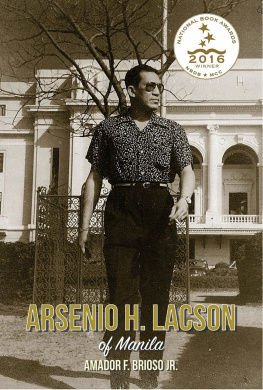Mark Kram - Ghosts of Manila
Here you can read online Mark Kram - Ghosts of Manila full text of the book (entire story) in english for free. Download pdf and epub, get meaning, cover and reviews about this ebook. publisher: HarperCollins, genre: Detective and thriller. Description of the work, (preface) as well as reviews are available. Best literature library LitArk.com created for fans of good reading and offers a wide selection of genres:
Romance novel
Science fiction
Adventure
Detective
Science
History
Home and family
Prose
Art
Politics
Computer
Non-fiction
Religion
Business
Children
Humor
Choose a favorite category and find really read worthwhile books. Enjoy immersion in the world of imagination, feel the emotions of the characters or learn something new for yourself, make an fascinating discovery.
- Book:Ghosts of Manila
- Author:
- Publisher:HarperCollins
- Genre:
- Rating:3 / 5
- Favourites:Add to favourites
- Your mark:
- 60
- 1
- 2
- 3
- 4
- 5
Ghosts of Manila: summary, description and annotation
We offer to read an annotation, description, summary or preface (depends on what the author of the book "Ghosts of Manila" wrote himself). If you haven't found the necessary information about the book — write in the comments, we will try to find it.
Abstract: The author tells the story of the Ali-Frazier matchup in Manila. When the Thrilla in Manila was over, the hype no longer mattered: one man was left with a ruin of a life; the other was battered to his soul.--Jacket
Ghosts of Manila — read online for free the complete book (whole text) full work
Below is the text of the book, divided by pages. System saving the place of the last page read, allows you to conveniently read the book "Ghosts of Manila" online for free, without having to search again every time where you left off. Put a bookmark, and you can go to the page where you finished reading at any time.
Font size:
Interval:
Bookmark:
The Fateful Blood Feud Between Muhammad Ali and Joe Frazier

For Mark, Tracey, Kerry, Raymond, Robert,
and Alix, my childrenAnd my wife, Rene
So in the Libyan fable it is told
That once an eagle, stricken with a dart,
Said, when he saw the fashion of the shaft,
With our own feathers, not by others hands,
Are we now smitten.
Aeschylus
W e went to Manila as champions, Joe and me, and we came back as old men, Muhammad Ali once told me. He was standing outside a South Carolina hospital, well into his forties by this point and years removed from that unspeakably hot tropical morning in Manila in 1975. Narrowly, he had beaten Joe Frazier that day in the final act of their heroic trilogy, and yet Ali would look back on it in years to come with a certain uneasiness, only too aware that it signaled what should have been the end of his career. The choice that stood before him at that juncture was a clear one: get out in one piece, or go on in a sport that is unforgiving to old men, especially those with too much pride, heart, and unexamined confidence for their own well-being. Had he bolted the gym door following Manila (as I was certain he was ready to do after eleven years of covering him for Sports Illustrated ), the denouement might well have been different.
The major thrust of this book is story, not biography; it is a portrayal of what each man was and is now. It is the tale of two men, Muhammad Ali and Joe Frazier, whose early close friendship is destroyed as their rivalry becomes steeped in ugliness played out dramatically on one of the largest stages in the history of sports. Divided by the heated temper of their times and their colliding views on race, they find themselves caught in a swirl of public love (Ali) and hate (Frazier), one left with a ruin of a life, the other battered to his soul. For five years, from 1971 to 1975, they sucked the life out of each other over three fights, the first and third of which remain as thrilling and vivid as they were then.
Secondarily, this book is intended to be a corrective to the years of stenography that have produced the Ali legend. Cheap myth corruscates the man; the wire scheme for his sculpture is too big. Junk commentary has been slapped on it to the point that a precise appreciation of just who Ali was (and is) has become obscured. Worse, grandstanding compassion over his admittedly tragic current situation has only served to block a clear view of him even more. While myth usually begins in a place of truthin this case, uncommon boxing skillit often ends in a place of fantasia, and this is where we find Ali. He has been celebrated for the wrong reasons and has been interpreted by an increasingly uninformed generation of media that was barely born at the height of his career. Ali is already, like Marilyn Monroe and Elvis Presley, condemned to wander television screens for eternity in snippets of file tape, the visual wallpaper of the mythic.
What was he and what was he not? Important world figure is commonly the description that travels with him these days. Unquestionably, he was important to boxing and sports. Of worldly significance? Wellcountless hagiographers never tire of trying to persuade us that he ranked second only to Martin Luther King, but have no compelling argument with which to support that claim. Ali was no more a social force than Frank Sinatra. Nor was he especially complex, unless you happen to view instant contradiction of utterance as deep. The politically fashionable clung to his racial invective as if it were the wisdom of a seer. Today, such are the times, he would be looked upon as a contaminant, a chronic user of hate language and a sexual profligate.
Ideology drove what most writers thought of Ali, especially Norman Mailer, who settled upon him like a mollusk, and sometimes in revealing transference seemed to want to merge with the champ. Ali played big in New York salons, bigger even than the Black Panthers, who were also viewed as hip avengers for political rightness. What was laughable, if you knew anything about Ali at all, was that the literati was certain that he was a serious voice, that he knew what he was doing; he didnt have a clue.
Two ideologists summon up the thinking then and nowKen Tynan and R. Emmett Tyrell. Tynan was a superb writer given to large crushes on certain showmen and insurrectionists. In his recently published Journal , he watches Ali beaten by Frazier, and etches bleakly. Frazier is Nixons hatchetman, and Alis flair, audacity is cut down by stubborn, obdurate hard-hat persistence. We may come to look back on the 60s as the Indian summer of Western imagination, of the last aristocrats of Western taste.
To the far right of Tynan is Tyrell, who regards Ali in a 1997 column as a corrupting rule breaker. Ali tore down the sport by introducing racial prejudice, and destroyed Frazier with utter nonsense and false calumny. Frazier was black. Ali remains a figure today because he is idolized by the ignorant and by mountebanks still making money off him. Bits of truth, minus the politics, fleck to the surface in both views.
Part 1 of this book, revisionist only to those who will not like their mythic perception jostled, begins with Ali and Frazier isolated in retirement. Part 2 deals with the emergence of both men with special emphasis on the manipulation of Ali by the Muslims. Part 3 reexamines their three bitter fights, especially the dead reckoning in Manila. More than twenty-five years later it still stands out in sharp relief as an utterly brutal, fateful affair. Fateful, because Frazier, convinced that Ali had stolen his black identity, seemed to sentence himself to victimhood; and because Ali, who soared on the wings of unsurpassed talent, spent his last ounce of it in that furnace heatand he knew it. Men of far less abilities would peck at his remains five years beyond when his art was transcendental; sadly, it would cost him his health. I once asked his former wife Belinda how we should remember Ali. She said, Remember him as a great fighter.
Legacy has become a pulverized, empty word of late, rather odd considering that America is not noted for much historical memory. In particular, the word seems out of place with sports heroes. Few leave anything behind for long for the next generationjust a line of numbers. Besides the thrill of watching Ali work, whatever his lasting impact on sports might be is altogether mixed. He did lead the way for black athletes out of the frustrating silence that Jackie Robinson had to endure. On the minus side, he also changed the climate of sports, from their promotion to the atmosphere in which they are conducted. His influence in games today can be seen in the blaring, unending marketing of self, the cheap acting out of performers, the crassness of player interactions that even informs our broader culture. Life, culture, and sports as pro wrestling. His was an overwhelming presence that came at a high price, ultimately to himself and the character of sports. Worse, far beyond Joe Louis, he continues to be guided in a mindless display like a sightless man feeling his way through the empty rooms of his remaining history.
O nly his face remained as I remembered it. Eight years had elapsed since I had seen him spiral through the final, perilous years of his career, and even at age forty-two it still held at bay any admission of destruction. There was no zippered flesh, no blistered or pulpy ears, nor eye ridges that drop into sagging eaves; the nose remained agreeably flat without distended bone or hammered spread. Always the centerpiece of vanitythis face, so instantly transportable into world consciousnessit was betrayed only by his eyes, his words. Where once his eyes publicly spilled with tumbling clowns, they were now a dance hall at daybreak. Where once the words streamed in a fusillade of octaves, they were now sluggish and groping.
Font size:
Interval:
Bookmark:
Similar books «Ghosts of Manila»
Look at similar books to Ghosts of Manila. We have selected literature similar in name and meaning in the hope of providing readers with more options to find new, interesting, not yet read works.
Discussion, reviews of the book Ghosts of Manila and just readers' own opinions. Leave your comments, write what you think about the work, its meaning or the main characters. Specify what exactly you liked and what you didn't like, and why you think so.








